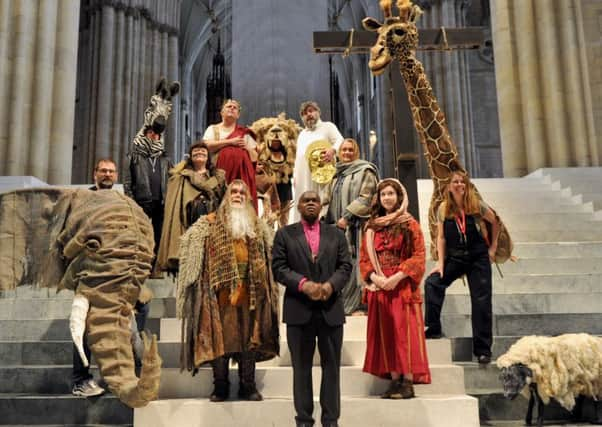York Mystery Plays send Minster into the red


The Minster admitted that ticket sales for the medieval Christian plays, described as “the greatest story ever told”, were “not as successful as forecast”, despite the spectacular setting and cast of nearly 200.
Only around 65 per cent of the 40,000 tickets available last summer were taken up, the Minster’s communications director, Sharon Atkinson, said.
Advertisement
Hide AdAdvertisement
Hide AdThe £1.3m cost of staging the 41 performances was “within the original budget”, but the Minster’s annual report said the ticket income was “significantly reduced”.
Ms Atkinson said: “We always knew that taking on the plays would come at a cost, but we took the decision to go ahead because of their importance to the city of York.
“It is a big thing for the city and we hadn’t done them since 2000 so it was our turn.”
Philip McGinley, a star of the TV series Game of Thrones, took the lead role of Jesus in the production, which is traditionally performed on a four-year cycle and has its roots in the 14th century York Corpus Christi Plays, written to dramatise the Christian message at a time when the Bible, in Latin, was out of the reach of most people.
Advertisement
Hide AdAdvertisement
Hide AdThe plays start with the Creation and end with Judgement Day, taking in the 10 plagues and the crossing of the Red Sea, the flight into Egypt, the Last Supper and the birth and trial of Jesus. The early scripts were hidden away after the Reformation and not rediscovered until the Victorian era.
Ms Atkinson said that despite the deficit, their production had left a legacy of increased visitor numbers to the Minster. Income from visitors last year totalled nearly £2.7m, despite the suspension of visits during the five weeks of performances.
The Minster’s total funds for the year were £46.2m, up from £44m in 2015, and income was up to £8.7m. The report said: “This was largely due to good returns on investments and properties, increased grants and visitor and retail income.”
The Dean of York, Dr Vivienne Faull, said: “These figures show that we did really well and that we ended the year much better off than we started.”
But she said the “complexities of running a cathedral in the 21st century” would require a “business-like approach with a clear financial focus.”